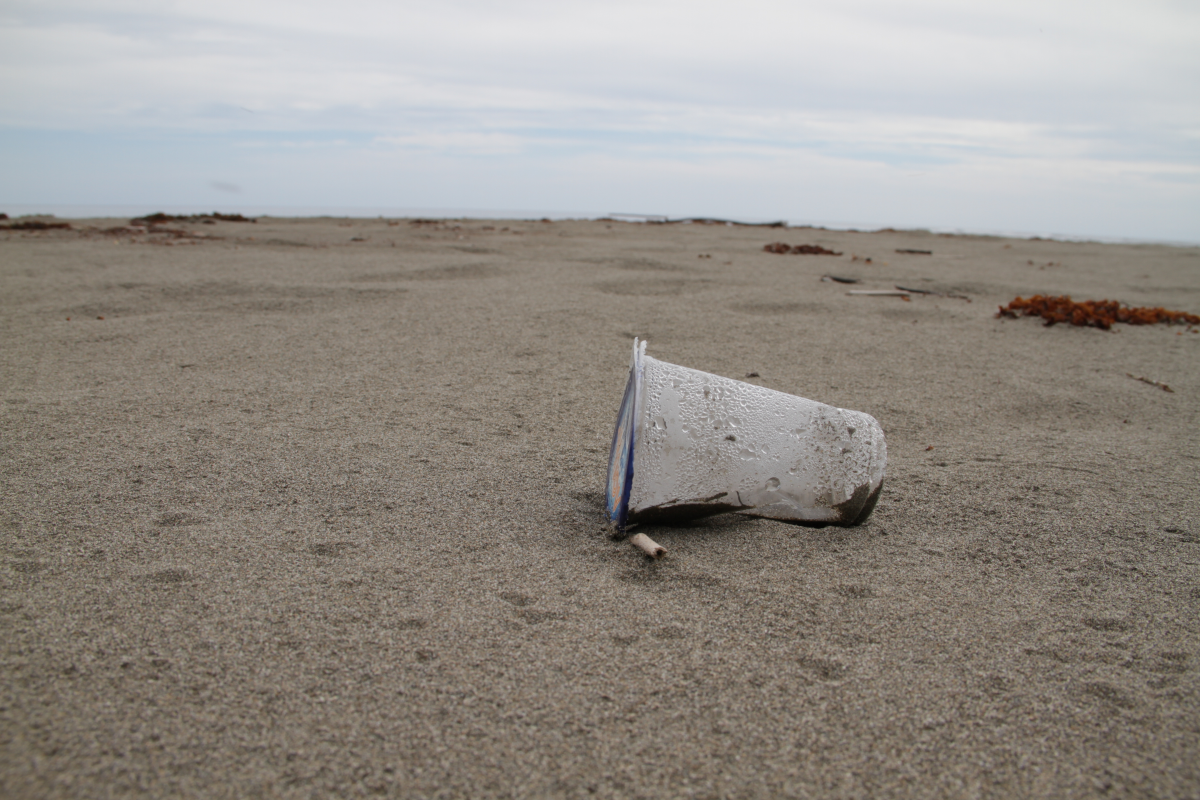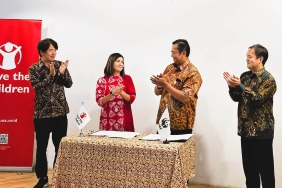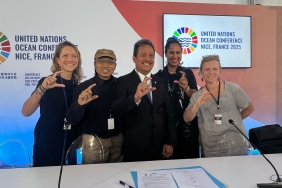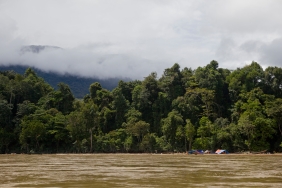WWF: COUNTRIES WITH STRONG COMMITMENTS MUST UNITE TO DELIVER AN AMBITIOUS GLOBAL PLASTICS TREATY OR RISK BEING TRAPPED IN A WEAKENING CONSENSUS
- Ahead of the final negotiations of the Global Plastics Treaty (INC-5.2), WWF is calling on member states to utilize all available procedural mechanisms - including the option of voting or forming a majority coalition - to ensure an ambitious agreement. This is because, if they continue to rely on consensus, a handful of countries are expected to continue to hinder a meaningful agreement.
- Plastic pollution threatens all life on earth and requires a global solution through a legally binding treaty that establishes mutual obligations. If such a treaty fails to be agreed at INC-5.2, the world will be trapped in a plastic-polluted future that is far more difficult and costly to reverse.
- A recent report by WWF and the University of Birmingham shows increased health risks from micro and nanoplastics and toxic chemicals in plastics, potentially leading to serious health problems such as cancer and reduced fertility.
GLAND, Switzerland (August 6, 2025) - Representatives from around the world are gathering in Geneva for the final negotiations of the Global Plastics Agreement (INC-5.2). WWF urges countries to use all available channels to fulfill their commitment: to produce a strong, legally binding global agreement to end the plastic pollution crisis. Failing to do so means going home with a weak agreement that will only harm people and future generations.
States can, and should, use legitimate and proven procedural pathways, such as voting to ratify new treaty texts, as was done in the ratification of the Universal Declaration of Human Rights and the UN Convention on the Law of the Sea, or forming majority coalitions to adopt treaties outside of the INC process..
"In a changing geopolitical environment, these negotiations are on a knife-edge. Petroleum-producing countries have used the consensus mechanism not to build an agreement, but to undermine it. This is not multilateralism, but obstructionism," said Zaynab Sadan, Global Plastics Policy Lead, WWF.
"But the absence of consensus does not mean a dead end. An ambitious majority of countries must dare to go their own way: through voting or forming coalitions. By abandoning those who continue to obstruct without good faith and harnessing their collective power, these countries can push for a treaty that truly protects people - both today and in the future. The support is there, the tools are there-now is the time to act," Sadan said.
These negotiations have missed the deadline, while every day around 30,000 tons of plastic flow into the ocean. Failing to formulate a strong agreement at INC-5.2 will only exacerbate this crisis-making it more difficult, costly, and dangerous for the global community.
The WWF and University of Birmingham report, titled Plastics, Health and One Planet, summarizes nearly 200 recent scientific studies on the risks of plastics to human health and the environment. The report highlights how micro- and nanoplastics (MnP), as well as chemical additives in plastics, can trigger biological disruptions such as endocrine disruption, hormone-related cancers (such as breast and testicular cancer), decreased fertility, and chronic respiratory diseases.
Although research continues to evolve, the evidence is strong enough to support the application of the precautionary principle, which is to take action when credible risks have been identified, even if scientific certainty is not absolute, in order to minimize the potential for future harm.
"The precautionary principle has been proven in numerous international agreements, such as the 1987 Montreal Protocol, where countries acted quickly on ozone-depleting substances before the science was fully confirmed. The result: millions of skin cancer cases were prevented and the ozone layer is now recovering," said Professor of Ecohydrology and Biogeochemistry, Dr. Stefan Krause from the University of Birmingham.
"The precautionary principle has been proven in various international agreements, for example, the 1987 Montreal Protocol, when countries acted quickly against ozone-depleting substances before the science was fully confirmed.
"Building on this precedent, we encourage negotiators to deliver a science-based, legally binding agreement that not only bans the most harmful plastic products and chemicals, but also makes the protection of people, animals, and the environment a key mandate."
Erik Teguh Primiantoro, Ministerial Expert Staff for International Relations and Environmental Diplomacy, Ministry of Environment said that "For Indonesia, plastic waste management is a national strategic agenda. The Minister of Environment has set an ambitious target: 100% plastic waste management by 2029. To achieve this, the approach that Indonesia is pushing is no longer partial, but comprehensive-from upstream to downstream. This includes ensuring that only residues end up in landfill, as well as encouraging the use of technologies such as satellite imagery to monitor and respond to plastic pollution in real-time."
In the Global Plastic Treaty negotiation process, Indonesia is committed to pushing for an agreement that favors environmental justice. Through this agreement, Indonesia hopes that there will be a binding and fair global mechanism that encourages the transformation of the plastic production system to be more responsible and sustainable.
Irfan Bakhtiar, Director of Climate & Market Transformation WWF-Indonesia, in his speech at the Journalistic Training on Global Plastic Treaty organized by WWF-Indonesia, said that "The current plastic problem is no longer a local issue, but has become a global crisis that demands cross-country solutions. Indonesia alone produces around 7.8 million tons of plastic waste every year, and most of it is still not well managed. The Global Plastic Treaty agenda in Geneva is an important momentum to encourage the birth of a legally binding agreement in controlling plastic pollution from upstream to downstream."
Irfan continued, "Pplastic waste management is a shared responsibility between producers and consumers. Consumers are responsible for being wiser in producing and sorting, while producers are responsible for the entire cycle of their products down to the waste produced."
The Geneva negotiations must result in a binding treaty that a majority of countries support, to effectively tackle plastic pollution globally. This includes a global ban on the most harmful plastic products and chemicals, product design standards to realize a safe circular economy, financial and technical support for developing countries, and mechanisms to strengthen and update the content of the agreement over time.
FINISH
For more information, please contact:
news@wwfint.org
For interviews with WWF experts regarding INC-5.2 and the report "Plastic, Health and One Planet", please contact: Fawziah Selamat - fselamat@wwfint.org
Note to Editors:
INC-5.2 will take place August 5-14, 2025, in Geneva, Switzerland.
WWF Spokespersons participating in INC-5.2:
- Kirsten Schuijt, Director General, WWF
- Efraim Gomez, Director, Global Policy Impact, WWF
- Zaynab Sadan, INC-5.2 Global Plastics Policy Lead & Head of Delegation, WWF
- Eirik Lindebjerg, Global Plastic Adviser WWF
- Erin Simon, VP, Plastic Waste & Business, WWF
- John Duncan, "No Plastic in Nature" Initiative Lead, WWF
- Florian Titze, Finance Expert, WWF
- Maria Alejandra Gonzalez, Senior Global Policy Advisor and Regional Coordinator, Latin America & Caribbean, WWF
We can also put you in touch with Prof. Dr. Stefan Krause (University of Birmingham) for specific scientific and health-related queries.
Relevant WWF documents and resources:
- Plastics, Health, and One Planet: A summary of nearly 200 scientific studies that confirm that plastic pollution, especially micro- and nanoplastics and toxic chemicals, is not only an environmental crisis but also a real threat to human life.
- Explanation of INC-5.2: In-depth information on developments following the previous INC in Busan, key challenges, and projected ministerial attendance.
- WWWF's expectations of INC-5.2: Recommendations for key steps to enable countries to form majority coalitions and realize fair and effective agreements.
- WWWF's Global Plastic Navigator: Platform to monitor country positions on key issues in the INC negotiations.
- To browse all WWF reports and resources related to the INC process, both past and current, please click here.





